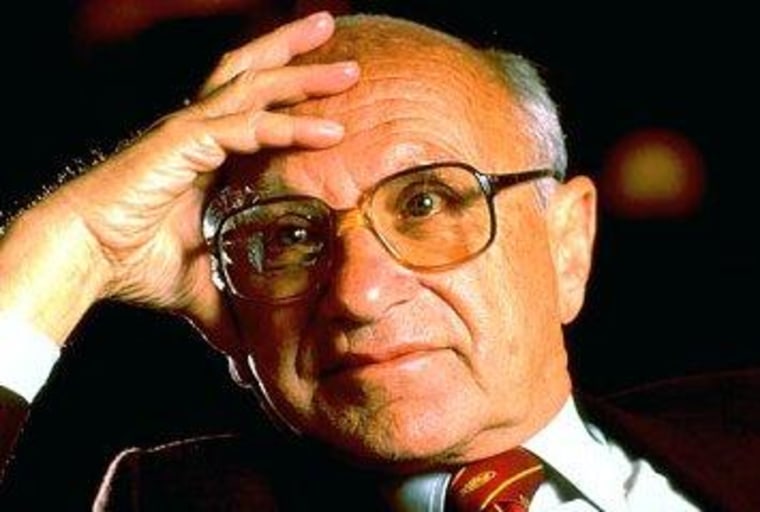When we last checked in with Maine Gov. Paul LePage (R), we heard him arguing IRS officials are comparable to Nazis, in part because both are responsible for "killing a lot of people."
This week, the news isn't quite as jaw-dropping, but it's nevertheless interesting that LePage yesterday proclaimed "Milton Friedman Day" in the great state of Maine. From the governor's press release:
Maine's educational goals align with Friedman's vision: all children should have the right to the highest-quality schools possible. Research suggests that providing children with multiple schooling options improves academic performance. [...]"We are striving to put students first and help them gain access to the best educational opportunities possible," Gov. LePage said. "Today's commemoration is a reminder of one more strong voice in support of solutions that support families and students when it comes to education."
Now, at a surface level, there's just something amusing about an often-clownish governor celebrating "Milton Friedman Day" because he'd like to privatize public schools. In fact, when I first heard about LePage's Friedman proclamation, my first instinct was to chuckle and move on.
But upon further reflection, I think there's a larger significance to this. Is the right sure it still likes Milton Friedman?
Remember, as the Republican Party has moved even further to the far right, ideas, principles, and even individuals who used to be celebrated by the GOP mainstream fell out of favor. Friedman, for example, believed in economic stimulus through monetary policy -- a policy today's Republican Party considers ridiculous and counterproductive.
Tim Noah also noted yesterday that Friedman "thought imaginatively about how the non-rich could pay for college education" and "came up with the idea for direct government loans to students at subsidized rates." In 2012, however, Mitt Romney and most congressional Republicans perceive direct government loans as a big-government mistake. (If the non-rich students can't afford higher-ed tuition, they should have been born into wealthier families.)
The larger point is that the GOP vision has changed. Just as today's Republicans have no use for the Reagan legacy, part of me wonders just how much of Friedman's arguments they'd find offensive by 2012 standards.
